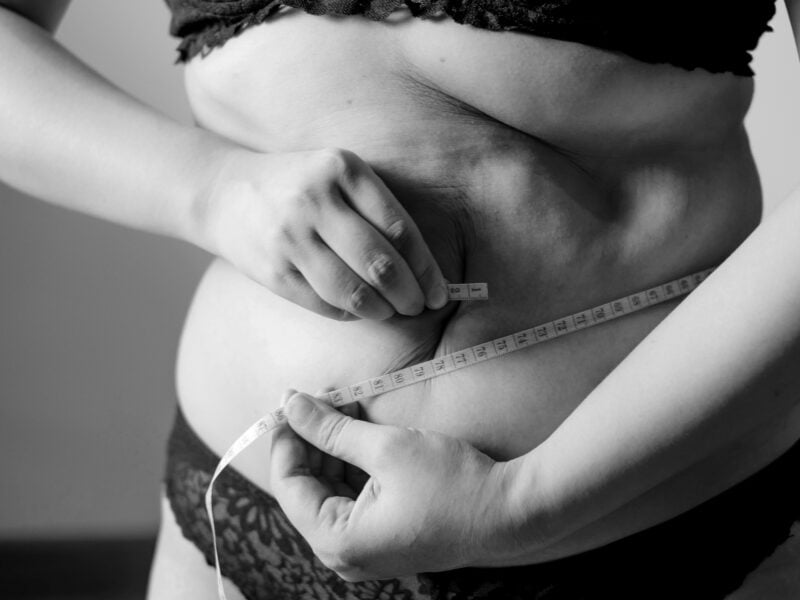Intermittent fasting involves cycling between periods of eating and fasting, which can significantly affect energy levels and metabolic health. When timed correctly, morning workouts during fasting amplify fat loss and improve metabolic adaptations.
However, the key to success lies in understanding how to balance the timing of your fasting window with your exercise routine to maximize benefits like increased fat oxidation and better glucose metabolism. This approach requires careful consideration of your body’s responses to fasting and physical activity, such as managing energy levels and ensuring adequate hydration and nutrient intake post-workout.
If you’re curious about integrating these strategies into your routine, here’s what you need to know to do it safely and effectively, enhancing your workouts and overall well-being.
Can You Workout On 16/8 Intermittent Fasting?
You can work out while following a 16/8 intermittent fasting schedule, where you fast for 16 hours and eat during an 8-hour window. Many people find this fasting pattern compatible with their exercise routines, but there are a few things to consider to make it effective and sustainable:
Timing Your Workouts
Ideally, you should schedule your workouts towards the end of your fasting period so you can eat soon after exercising. This helps in refueling and recovery. For instance, if your eating window is from 12 pm to 8 pm, a morning workout around 10 am or 11 am could be optimal.
Type of Exercise
Light to moderate exercise such as walking, jogging, or light strength training can be comfortably done while fasting. However, if you plan on doing high-intensity workouts or heavy strength training, you should experiment with the timing to see if you should eat a small pre-workout meal for better performance and stamina.
Hydration
Stay well-hydrated during the fasting period, especially if you exercise. Drinking water and calorie-free beverages like black coffee or tea can help maintain hydration without breaking your fast.
Listening to Your Body
Pay attention to how you feel. If exercising on an empty stomach makes you feel weak, dizzy, or nauseous, you might need to adjust the timing of your meals or the intensity of your workouts.
Adaptation Period
Your body might experience an adaptation period as it gets used to working out while fasting. Initially, performance might dip, but many find that it stabilizes after the body adapts to the new routine.
Is Intermittent Fasting Good If You Workout In The Morning?
Intermittent fasting, when paired with morning workouts, can be beneficial depending on your fitness goals and how your body responds to fasting. Some individuals find that exercising on an empty stomach enhances their energy levels and focus due to increased adrenaline production. This state can also promote higher fat oxidation, as the body taps into fat stores for energy without glucose from recent meals.
However, the suitability of this practice can vary with the type of exercise. At the same time, light to moderate activities like yoga or jogging may not be negatively impacted. More intense sessions like heavy weightlifting or high-intensity interval training could suffer from a lack of pre-workout nutrition, potentially affecting performance and stamina.
Additionally, there is a concern about muscle loss when exercising in a fasted state, especially if protein intake is not adequately managed within the eating window. Therefore, if muscle gain is a goal, aligning protein consumption closely with workout times is essential. While intermittent fasting can help with fat loss when combined with morning workouts, it’s necessary to consider personal health goals, monitor physical responses, and adjust the approach to ensure it supports overall health and fitness objectives.
Will I Lose Muscle If I Workout On An Empty Stomach?

Exercising on an empty stomach can pose a risk of muscle loss, mainly if workouts are intense or prolonged. When the body lacks immediate dietary energy, it may turn to stored glycogen and muscle tissue to fuel activity, significantly once glycogen stores are depleted. The risk is heightened during heavy weightlifting or extended cardio sessions, which can dramatically tax the body’s energy reserves.
However, the extent of muscle loss depends on several factors, including the frequency of fasting workouts, overall dietary intake, and, specifically, protein consumption to complete overall nutrition. Adequate dietary protein is crucial as it helps repair and build muscle tissue. Those who are adapted to fat-burning, like individuals on ketogenic diets or who regularly practice fasting, may experience less impact. Moreover, muscle preservation is greatly aided by consuming a balanced mix of protein and carbohydrates shortly after exercising, which is crucial if the workout session occurs on an empty stomach.
Thus, while muscle loss is potential, strategic nutritional planning and timing can effectively mitigate this risk. Maintaining a consistent intake of nutrients and adjusting workout intensity based on energy levels can also significantly prevent muscle degradation. Proper hydration and regular monitoring of physical responses to fasting workouts are essential to optimize performance and minimize adverse outcomes.
What Are The Benefits of Intermittent Fasting?
Intermittent fasting offers a variety of potential health benefits, which have attracted attention in both the scientific community and among health enthusiasts. Here’s a breakdown of some key benefits:
Weight Loss and Fat Loss
One of the most sought-after benefits of intermittent fasting is its ability to help reduce body weight and fat. By limiting the eating window, people typically consume fewer calories throughout the day, which can lead to a caloric deficit and subsequent weight loss. Moreover, fasting periods increase the efficiency of metabolic processes related to fat burning.Enhanced Heart Health
Fasting has been linked to better heart health by improving cardiovascular risk factors. These include lowering blood pressure, reducing cholesterol levels, and decreasing triglycerides.Brain Health
Growing evidence shows that intermittent fasting can have neuroprotective effects. It may enhance brain function, increase nerve cell production, and improve neurological health outcomes. It’s also linked to a reduced risk of neurodegenerative diseases like Alzheimer’s.Cellular Repair and Autophagy
During fasting periods, autophagy is promoted. Autophagy is the body’s way of cleaning out damaged cells and regenerating newer, healthier ones. This process is crucial for cellular maintenance and protects against diseases like cancer and neurodegeneration.Simplification of Meal Planning
Intermittent fasting simplifies eating schedules and meal planning, reducing stress around food and helping individuals focus on quality rather than quantity.Improved Eating Habits
Fasting can help regulate eating patterns and curb cravings, leading to improved dietary discipline and better overall nutritional choices.Conclusion: Will I Lose Muscle If I Workout Fasted?
For those concerned about losing muscle, it may be wise to time protein-rich meals close to workout sessions to support muscle repair and growth. While fasted workouts can be part of a healthy lifestyle, they should be carefully managed to ensure they contribute positively to your fitness goals without compromising muscle integrity.





